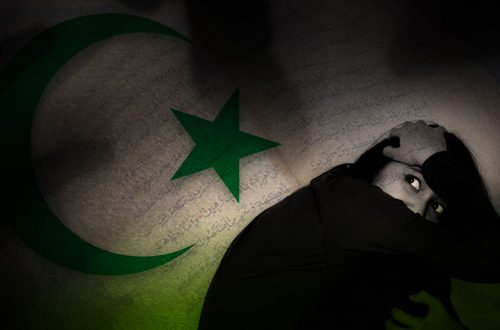This is a guest post by Ben Cohen of Z Word
Reacting to the sentencing of more than twenty gang members convicted for the kidnapping, torture and murder of her 23 year-old son, Ilan, Ruth Halimi declared herself to be “frightened” at the relatively lenient terms received by all the defendants other than the ringleader. The trial of Ilan’s murderers was not public, she noted, because two of the defendants were minors when the crime was committed. As a result, French society was denied a vital insight into the violent, delinquent antisemitism which festers in its banlieues. Had the horrific details of Ilan’s ordeal been recounted in the public eye, these prison terms, one as light as six months suspended, would have been much tougher.
As of this afternoon, the French Justice Minister, Michele Alliot-Marie, apparently agrees with Ruth Halimi. Fourteen members of the gang, known as “The Barbarians,” now face a retrial, on the grounds that their original sentences were too lenient.
Mme. Alliot-Marie has done the right thing. Her decision should be welcomed by anyone who understands the depths to which human beings can sink when they are poisoned by racism.
Every so often, you come across a hate crime possessed of the most breathtaking depravity. Just recently, there was the murder of Egyptian immigrant Marwa El Sherbini in a German courtroom, at the moment that she was giving evidence against a man who had verbally abused her for the offense of being a Muslim. Three months pregnant, she was stabbed 18 times by the very man whom she was testifying against, while her three year-old son watched helplessly. Her husband, who tried to intervene, was himself shot by the court security guards.
Or remember the case of Matthew Shepard. In October 1998, Shepard, a young gay man, accepted the offer of a lift home from two men he met in a bar near Laramie, Wyoming. Eighteen hours later, he was found, barely alive, tied to a fence in a remote rural area, having been pistol-whipped and tortured. The man who discovered Shepard initially thought he’d come across a scarecrow.
Ilan Halimi belongs in that category of hate crime victims whose stories leave you wrecked by anger and sorrow. Like Matthew Shepard, Halimi was alive – just – when his body was discovered. And like Shepard, Halimi died a few hours later, having suffered more than three weeks of the most gruesome torture at the hands of the gang that kidnapped him. Suffering, moreover, that was rooted in one simple, immutable fact. Ilan Halimi was a Jew.
The facts of what happened bear recalling. On the evening of 20 January 2006, Halimi met up with an attractive girl in her late teens, known as “Yalda,” who’d first approached him in the cellular phone shop where he worked. She lured him into the clutches of The Barbarians, who kidnapped and imprisoned him. The following day, Halimi’s family received a note demanding a ransom of more than half a million dollars.
No matter that the Halimis were a family who lived modestly, on a small income, alongside other working class Jewish and Muslim families in their suburban Paris neighborhood. The Barbarians kidnapped a Jew because, they were certain, all Jews are rich. Youssef Fofana, an Ivorian Muslim in his late 20s and the gang’s leader, told Halimi’s family that if they couldn’t afford the ransom, they should “go and get it from the synagogue.”
Out of all the defendants, Fofana is the only one to have received the maximum sentence under French law: life, with no prospect of parole for 22 years. That is a fitting sentence for a man who directed and participated in the beating of Halimi, who burned him with cigarettes and acid, who photographed him, his face and hands bound with masking tape, in a Daniel Pearl pose, and who dumped him after twenty-four days outside a Parisian train station with – said the police – 80 per cent of his body butchered.
But what about those who played an enabling role, like “Yalda,” aka Sorour Arbabzadeh, who received nine years for her role as honey-trap? What about the acquittal of two of Fofana’s accomplices? There is good cause to believe, as Minister Alliot-Marie says, that these verdicts are too lenient. France’s legal system must now define what punishment, in a case as grotesque and as disturbing as this one, actually means.
The French courts also now have an opportunity to right another wrong: the refusal, despite persistent pleas from Ruth Halimi, to hold the trial in public. There are difficult, painful questions to be asked about, for example, the relationship between the tropes of antisemitism and the furious, bestial cruelty they unleashed in this case; about the prevalence of casual antisemitism among young people in France, many of them – but, like the Barbarians themselves, by no means all – Muslims; about the way in which Fofana portrayed his irredeemably reactionary crime as an act of resistance, in language that conjures up the image of a clenched fist (”Mon nom, c’est ARABS, Africain révolte armée barbare salafiste;”) about much else besides. And they should be asked in public.
Above all, those on the left and the right who insist that Israel’s actions are responsible for today’s antisemitic outrages would do well to reflect that Ilan Halimi – the victim of toxic notions about Jews which predate the existence of a Jewish state – is finally at peace in the country where, had he lived there, he would now still be alive. One day soon, perhaps, Ilan’s relatives will be able to recite Kaddish for him in Jerusalem’s Givat Shaul cemetery in the knowledge that justice has at last been served.



